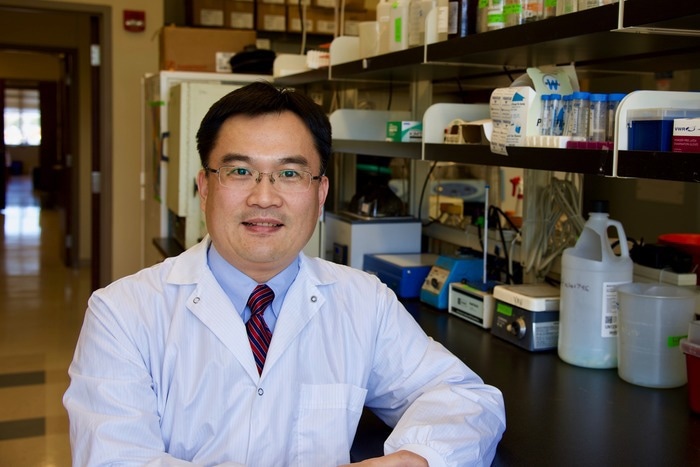Cancer, which affects so many people each year, relies on proteins to proliferate throughout the body. Scientists are damaging the disease’s protein factories as part of a new tactic to combat the widespread disease.
 Shan Yan, UNC Charlotte. Image Credit: UNC Charlotte
Shan Yan, UNC Charlotte. Image Credit: UNC Charlotte
Scientists from the University of North Carolina at Charlotte highlighted the emerging topic of nucleolar DNA damage response (DDR) pathways in a new forum paper published in Trends in Biology. The review focuses on six ways by which cells repair DNA damage, one of which was published in Nucleic Acids Research five months ago by the same authors. Future applied researchers will be able to impede cancer reproduction and growth by addressing these processes.
The whole purpose of the Trends paper is to bring attention to scientists in the field and trigger their research. I did not realize the significance of this field, which is only fifteen years old, until a couple of years ago.”
Shan Yan, Main Author, University of North Carolina at Charlotte
Scientists began the field in 2007 with the discovery of the first pathway within the nucleolus, a region within an organelle, or room, within the cell. Different chemicals within the nucleolus aid in the replication of DNA, which carries the instructions for cells. Glitches in the copies can be caused by a variety of reasons, including strand breaks.
The researchers discovered a method to help fix errors in ribosomal DNA or the instructions for the cell’s protein factories.
Investigators can aim against cancer by researching these systems, which rely on ribosomal DNA to produce the proteins required to attack the human body. For example, a Phase I clinical trial for a medicine that targets the second mechanism outlined in the study is already underway—if cancer cells cannot heal errors, they cannot form new factories, and thus cannot make new proteins.
Even though the first four mechanisms occur within the nucleolus, which is a room within the watery cell, the latter two mechanisms employ a unique cellular activity that was awarded the 2023 Breakthrough Prize in Life Sciences. Instead of staying inside a room, proteins pop up their own liquid “tents” to do their work in the process known as liquid–liquid phase transition.
Yan studied a protein called APE1 before working on the nucleolar DDR. When he realized that APE1 could detect the nucleolus within a cell and also pop up these liquid tents to accomplish work, it sparked his interest in these pathways and eventually led to the review paper.
What's new is that APE1 acts like a GPS or a first responder. It says there’s a problem here, we need a police car, a medic, and others to come and be concentrated here.”
Shan Yan, Main Author, University of North Carolina at Charlotte
Basic investigators like Yan will work to improve these systems, which will subsequently be used as areas of attack in the cancer fight by more applied scientists.
This is an exciting and emerging area. By testing this idea, and if the clinical trial is successful, then these mechanisms will be tickets into new clinical trials and treatments.”
Shan Yan, Main Author, University of North Carolina at Charlotte
Source:
Journal reference:
Li, J. & Yan, S. (2023). Molecular mechanisms of nucleolar DNA damage checkpoint response. Trends in Cell Biology. doi.org/10.1016/j.tcb.2023.02.003.